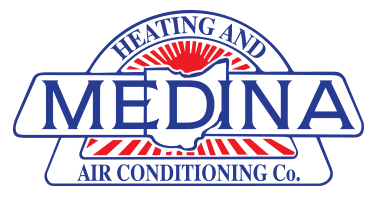Ever been caught in a summer heatwave when your AC suddenly quits? Or shivered through a winter night when your heater decided to take a break? HVAC systems are so important for our homes, quietly keeping us comfortable year-round. But here’s the million-dollar question most homeowners don’t know the answer to: how long will your HVAC system actually last?
Do they last longer in businesses than in homes? What can you do to keep them running longer? How many years can a typical system even last? We’ll tackle these questions and more so you can plan ahead for your HVAC system’s future.
The Average Lifespan of Different HVAC Components
The average HVAC system lifespan isn’t a simple number. Your furnace might last 15–20 years, while your air conditioning unit typically runs for 10–15 years. Heat pumps often fall in the middle at 10–15 years.
The outdoor units face harsh weather and typically wear out faster than indoor components. Air filters need regular replacement every 1–3 months, while air handlers might last 10–15 years with proper care. Ductwork can last 20–25 years before needing replacement.
Keep in mind that these are just average timelines, and you can probably tell based on the length of time they cover. The difference between 10 years and 15 years is a lot! Think about where you were 5 years ago vs where you are now. A ton has probably changed. But while these figures are a fair distance apart, there are some things that affect how close your system lands toward either end of the stick.
Factors That Affect Your HVAC System’s Longevity
Your HVAC unit’s lifespan depends on several key factors. Climate plays a huge role, as systems in mild areas last longer than those battling extreme heat or cold. The quality of your initial installation matters tremendously too, as a poorly installed system might fail years earlier than expected. Regular maintenance adds years to your system’s life, so make sure you’re changing air filters, cleaning coils, and getting yearly professional check-ups that make a big difference.
Usage patterns impact longevity, too. If you’re running your system non-stop, it will probably shorten its life. The brand and quality of equipment matter as well, with premium systems typically outlasting budget options. Your home’s size and insulation quality affect how hard your HVAC system runs daily, directly impacting its lifespan.
Signs Your HVAC System Is Nearing the End
Your HVAC system sends clear signals when it’s struggling. If your energy bills keep climbing without explanation, your system is likely working harder than it should. Strange noises like grinding, scraping, or banging are red flags that shouldn’t be ignored.
When your home feels inconsistently heated or cooled, with some rooms too hot and others too cold, your system may be failing. Frequent repairs, especially within a short timeframe, often mean your system is on its last legs.
Poor air quality, unusual smells, or excessive dust can indicate serious HVAC problems. If your outside HVAC units make unusual noises or your system cycles on and off repeatedly, it’s time to call an HVAC contractor to assess the situation.
How Regular Maintenance Extends HVAC Lifespan
Regular HVAC system maintenance is a necessity for maximizing your system’s life. Yes, doing things like changing air filters every 1–3 months prevents your system from overworking and improves air quality. But annual professional tune-ups catch small issues before they become expensive problems.
Keeping outdoor units clear of debris and vegetation prevents strain on the system. Cleaning air ducts every few years removes buildup that forces your system to work harder. Simple tasks like checking thermostat accuracy and keeping vents unblocked help your HVAC system run efficiently.
The math is clear: spending a little on routine maintenance saves thousands by extending your system’s lifespan.
Modern HVAC Systems vs. Older Units
Today’s HVAC systems generally outlast their predecessors thanks to technological advances. Modern air source heat pumps can last 15+ years, compared to older models that might fail after around a decade. Energy efficiency improvements mean new systems run less frequently, reducing wear and tear. Digital thermostats provide more precise temperature control, preventing the system from overworking.
Current manufacturing standards have improved component durability significantly. However, older systems were often simpler mechanically, sometimes making them easier to repair.
The trade-off comes in energy costs, as a 15-year-old system might still run but cost considerably more in monthly bills than a new HVAC system with higher efficiency ratings. Modern central air conditioning units with variable-speed technology put less strain on the system during startup, potentially adding years to their lifespan.
Repairing vs. Replacing Your Aging HVAC System
As your HVAC system ages, you’ll face tough decisions about repairs versus replacement.
The 50% rule offers guidance: if a repair costs more than 50% of a new system price, replacement is usually smarter.
Consider the system’s age, too, as pouring money into a 15-year-old system rarely makes financial sense. Energy savings from new systems can offset replacement costs, and many HVAC contractors offer financing options that make new system costs manageable.
The environmental impact matters because newer systems use refrigerants that don’t harm the ozone layer. A new installation also gives you a chance to right-size your system, potentially saving more on operating costs.
Remember, though, your budget matters most. If repairs are more affordable, then do what you need to do to keep your home and family comfortable. But if you can afford to replace your HVAC system when the time calls for it, you should!
How’s Your HVAC System Doing? We Can Help!
Take a moment to think about your HVAC system. When was the last time you had it serviced? Is it making unusual noises or struggling to keep your home comfortable? Are your energy bills creeping up without explanation? These could be signs that your system needs attention.
Medina Heating and Air Conditioning can help extend the life of your heating or cooling system with top-notch maintenance or set you up with a brand-new one if it’s time for an upgrade. Our Ohio-based HVAC team excels in both maintaining older systems to squeeze extra years of service and installing high-efficiency replacements when needed. Contact us today for an honest assessment of your HVAC system’s condition and get the heating and cooling services you need!


